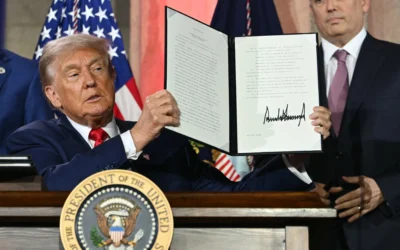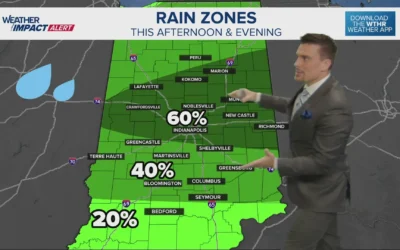Unraveling the Twisted Plot: A Deep Dive into the Ending of ‘Mandala Murders’
The Indian thriller series ‘Mandala Murders’ has created quite a stir since its release, attracting viewers with its blend of horror, mystery, and spirituality. Directed with flair and featuring a strong performance by Vaani Kapoor, this show is a thrilling yet convoluted depiction of death, revenge, and the supernatural. As audiences flock to streaming platforms to delve into this intriguing territory, one question lingers in the air: What exactly happened at the end of ‘Mandala Murders,’ and what does it all mean? Let’s unpack this puzzling conclusion and the themes that ground it.
The Intricate Plot Unveiled
At its core, ‘Mandala Murders’ revolves around a series of grisly murders that seem to be linked to ancient spiritual practices and rituals. The protagonist, played by Vaani Kapoor, is on a quest to uncover the truth behind these killings, leading her down a dark path filled with jagged twists and turns. Each episode peels back the layers of a complex narrative intertwined with the myths and folklore that permeate Indian culture.
The series has garnered mixed reviews, with some lauding its audacious storytelling while others criticize its tendency to indulge in the ‘mumbo-jumbo’ of Indian mysticism, potentially alienating those unfamiliar with its cultural references.
A Dive into the Ending
As we reach the climax of the series, viewers are met with an amalgamation of revelations that challenge their perceptions. The conclusion is not just a simple ‘whodunit’; rather, it delves into the existential questions surrounding morality, fate, and the human psyche. The final episodes reveal that the murders aren’t simply about revenge or greed—there’s a deeper metaphysical connection that transcends earthly motivations.
Without delving into spoiler territory, let’s talk about the specific elements that contribute to this ending’s complexity. Throughout the season, spiritual beliefs clash with reality, leaving viewers questioning what is real and what is merely a figment of imagination. Vaani’s character grapples with her sanity as she encounters ominous signs and symbolism, embodying a deep-seated connection with the mysticism that runs through Indian society.
Symbolism and Themes
One of the most compelling aspects of ‘Mandala Murders’ is its rich symbolism. The ‘mandala’ itself, typically associated with wholeness and unity in spiritual practices, serves as a metaphor for the chaos lying beneath the surface of the characters’ lives. Just as a mandala is often comprised of intricate patterns, so too is the narrative of the series stitched together from disparate threads of culture, belief, and human experience.
The deaths portrayed in the series are not mere murders; they represent a metaphysical reckoning of past sins, echoing themes prevalent in various folklore traditions across India. Aligning with this narrative framework, the series invites viewers to consider the forces of karma at play—how our decisions ripple through existence and lead back to us in unforeseen ways.
The Role of Vaani Kapoor
Vaani Kapoor’s performance is pivotal to the series, providing an anchor in the chaotic descent into madness and the supernatural. Her character’s transformation throughout the episodes— from an unsuspecting investigator to a woman grappling with her own beliefs—mirrors the struggles many individuals face when confronting deep-seated fears and questions about the unknown.
Critics have pointed out that Kapoor embodies both strength and vulnerability, adding layers to the narrative that compel audiences to question their own understanding of truth and reality. Despite some critics labeling the show as a ‘toothless hunt’ that lacks the bite of genuine horror, Kapoor’s portrayal injects a certain fervor that keeps the story alive.
Critical Reactions and Audience Interpretation
As mentioned, ‘Mandala Murders’ has received its fair share of critique. Some have labeled it as a convoluted mess of unfulfilled potential, accusing it of stretching credulity in its narrative. Such opinions often stem from the show’s incorporation of religious and spiritual themes that might be unfamiliar or inaccessible to a segment of the audience.
However, the series also resonates with those well-versed in Indian cultural folklore, granting deeper insights into the allegories presented. For many, the layers of meaning coupled with the eerie atmosphere of the narrative evoke a sense of catharsis, inviting viewers to wrestle with their own interpretations of fate and free will.
Your Takeaway
Whether one enjoys ‘Mandala Murders’ or finds it too far-fetched, it undeniably raises meaningful questions about belief systems, morality, and the impact of human actions—both seen and unseen. The interaction between the tangible and the intangible is represented vividly throughout the series and culminates in a conclusion that invites deeper thinking.
In a world dominated by content that often favors simplicity, creating something as multi-faceted as ‘Mandala Murders’ is a bold move. Despite any perceived shortcomings, the exploration of complex themes offers a refreshing perspective, urging conversations around belief, ethics, and the dark shadows that linger in the corners of our minds.
Conclusion
Ultimately, the ending of ‘Mandala Murders’ serves as a glowing testament to the intricacies of life itself—chaotic, unpredictable, and sometimes incomprehensible. By melding horror with philosophical inquiry, the series promises a unique viewing experience that lingers long after the credits roll. ‘Mandala Murders’ compels its audience to confront their preconceptions, encouraging us all to engage with the mysteries of life, death, and what lies beyond.
For viewers willing to traverse this narrative labyrinth, ‘Mandala Murders’ offers a rich tapestry of storytelling that reaffirms the power of the human story in all its convoluted glory.







